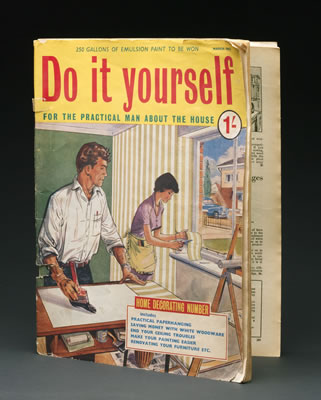College Professors that advocate Communist dictatorships. Students graduating with staggering debts and seeing no way out other than government intervention. Does this happen by accident or design?
I don't truck much in conspiracy theories here. They are a personal time-waster, a means of externalizing your own problems by blaming them on unseen others. And besides, most of them miss the greater point. The popular conspiracy theories have little to do with reality and your situation in life. Whereas the more obvious "conspiracies" have a great impact on your life but are little talked about.
For example, people love to obsess about aliens in area 51, or the Kennedy Assassination, or 9/11 trutherism - nothing which, even if true, would really impact your life. And of course, these theories are all not true - let's be clear about that. And no, this is not up for discussion so please don't bother.
But what about more obvious economic conspiracies that directly impact your life? Maybe these aren't conspiracies per se, although like any good conspiracy, they involve a lot of disparate actors acting in concert.
In any small town, there is a section, usually near the poor neighborhood, where there are rows of stores selling payday loans, buy-here-pay-here used cars, check cashing, title pawn loans, and fifths or flasks of cheap booze. These organizations prey upon the poor, perpetuate poverty, and are clearly organized and have their own trade associations and defenders in Congress. A more organized conspiracy to keep people down I cannot imagine. But the guy blathering on about "fire can't melt steel" between bong hits, doesn't see the conspiracy in front of his own eyes - the one most likely to victimize him.
And that is likely because a conspiracy that you can do something about isn't what the "conspiracy buffs" like. They want unsolvable problems so they can be the friend with the perpetual problem and have an excuse not to succeed in life.
Speaking of conspiracies that you can do something about and smoking pot, don't you think the whole drug epidemic smacks of conspiracy? Whether it is Pablo Escobar or "El Chapo" or even that "legitimate" American Pharmaceutical company, the use of drugs, as I have noted before, is one of the most effective ways to create and foster a permanent underclass, as well as to ruin middle-class and even upper-class people and take all their money. Even lowly pot sentences its users to a lifetime of marginal living, petty criminality, and low-wage jobs. A more beautiful conspiracy I cannot imagine - and one that works to well to keep the powers-that-be in power and the little people down. And right out in the open, too!
But again, a conspiracy you could do something about, so the conspiracy buffs have no interest in it. They want far-away things that they can talk about, but not take any real action on.
What got me thinking about this was my last posting about college and whether you need college to succeed - and the startling infographic that illustrated that nearly every head of this new generation of high-technology companies is in fact a college dropout. And all of them basically said the same thing - that college was just a waste of time for them, after a while, as they had a life to live. If they had stayed in college, they would have gotten "good jobs" working for the guy they would have been. They would not have ended up the richest man in the world.
But it got me thinking even further - that maybe college is a trap, and that one that is used by the Left to mold a new generation of Leftists to do their bidding. Perhaps not by accident but by design, more and more colleges are offering utterly useless degrees in "Politics" or "Communications" or whatever, knowing their graduates will end up as bitter, angry people with an insurmountable pile of debt (all of which the college profits from) and the idea in their head that the only solution to their problems is massive government intervention in the form of free college, loan forgiveness, guaranteed minimum income, guaranteed jobs, and so forth.
Now again, I don't believe in conspiracy theories, so go sell that nonsense somewhere else. But if you are a far-right person, you might want to look into this, as it appears to have legs. By accident or design, colleges are churning out a perpetual underclass of over-educated but under-qualified "victims" who are massively in debt and see no future in the capitalist system, which has utterly fucked them over from the get-go. And since every revolution is lead not by the poor, but by the middle-class, it seems they are churning out an army of revolutionaries for their cause. In 10-20 years, we may see a permanent underclass of people willing to try anything, even Communism, to cure their perceived ills.
The image above is a book cover from a Drexel University professor's website. The book is basically a paean to Venezuelan dictator Hugh Chavez, whose successor this morning threw off all pretense at Democracy and took over the country. This professor seems to think that Communism is a model for a better Democracy and that "neo-liberals" are messing everything up.
This is not liberal thinking, it is outright Communism. And this same yahoo has also gotten into trouble tweeting that he thinks "White Genocide" will cure the world's ills and that a man who gave up his seat on an airplane for a soldier "made me want to puke".
I'll bet he's fun at parties! And his "prison-pussy" beard looks ludicrous, by the way.
What's sad is that this is the kind of guy who is teaching your kids when they go to Party University to study "Politics" and get a useless degree. He fans the flames of outrage in young privileged youth, who upon graduation become impoverished and indebted unprivileged youth, prime fodder for the "progressive" political movement and Communists like Bernie Sanders.
But like I said, I don't believe in conspiracy theories. Nevertheless, if I was Vladmir Putin, I'd be sending this guy a stipend check.
You laugh, it actually happens. Before the Berlin wall fell, my hippie brother used to travel to all the Eastern Bloc countries - and Russia - as well as Cuba, to put on his little "We hate America!" puppet shows. The Communists loved him, as they could trot his group out to show their own people that "even in America" the citizens don't like democracy or capitalism. He was a useful idiot of the first order. And the Communists paid them to come and perform. But of course, Russia never interferes in foreign politics, right?
My brother cried when the Berlin wall fell - for all the wrong reasons. And I am sure he shared a tissue with this Drexel professor, although I guess the latter was still in diapers at the time.
So what's the point of all of this? Conspiracy theory or not, College can be a deadly trap. If you are planning on going to college or you have kids going to college, sit down and think about where all this money is taking you, because today it is a shockingly large amount of money. Are you going (or your kid is going) to Party U because it sounds like "fun" and the courses don't seem too hard?
Is their major one worth studying, or just a bunch of philosophical nonsense than you could learn by reading a few books? Are you in fact just sending your kid off to a political propaganda school to be turned into someone you won't recognize in four years?
Again, conspiracy theory or not, this is what many American colleges have devolved into, and it is not a new trend. My hippie brother went away to Middlebury and came back a raging Communist, living on a commune and decrying the American system as vile and corrupt - the very same system that sent him off to college.
Did Communist influences back then infiltrate our universities and colleges? Well, every country does this - uses influence to push movements one way or another. The CIA was famous for it, particularly in Latin America and South America - as well as the Middle East. Russia was surely involved here as well, and I doubt they took a "hands off" approach to what was happening, either organically or by design, on college campuses in the 1960's.
Today, we have philosophies bandied about on college campuses that make the 1960's look like a Republican party convention. And a whole new generation of kids is graduating with mush between their ears, no prospect of any serious employment, but as a new added bonus - staggering debt. Debt they might be able to get out from under, even through forgiveness programs - which no longer forgive!
But then again, maybe this isn't a conspiracy theory. Because as I noted above, a real conspiracy theory involves distant unseen powers or groups that the victim of the conspiracy is powerless against. The conspiracy theorist wants a reason to externalize and rail against the unfairness of the system - but not a way of getting out from under the trap. So aliens or 9/11 or assassinations are great conspiracies - you can never solve them, and nothing you can do in your own life will change them.
College, on the other hand, is something you have a choice about. You can get a worthwhile degree. You can study hard. You can borrow less. You can choose not to be indoctrinated or believe in silly "share the pie" theories. You can control your own life in this regard.
So I guess it makes for a lousy conspiracy theory. When you can actually take action in your life to change things, then the conspiracy theory makes for lousy externalization.





